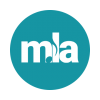Academic libraries support teaching and learning through their course reserve services, in which library materials, at the request of an instructor, are temporarily removed from general circulation and held in reserve for use by the students and instructor of a particular course during the term that course is taught. This long-established practice ensures that materials are equally available to all participating students, and provides crucial support for learning and teaching in the academy.
Providing adequate access to course materials demands that music libraries provide aural access to sound recordings. In addition, sound recordings of musical works must be made available in their entirety. Just as attempting to comprehend the structure of an architectural plan using only a portion is impossible, music educators cannot effectively reference the internal relationships within a musical work without providing aural access to the complete work. Music educators require the flexibility to select manifestations of the musical works they teach based on educational relevance and instructional objectives.
New technology has brought dramatic improvements in the delivery of these materials. Chief among these is the ability of libraries to deliver course reserves electronically, allowing students and faculty to access materials through any computer. This functionality requires making digital copies of copyrighted material.
Section 107 of the copyright law states that “the fair use of a copyrighted work…[for] teaching (including multiple copies for classroom use), scholarship, or research, is not an infringement of copyright.” The Music Library Association takes the position that the making of digital copies of entire works, in order to provide digital delivery of course reserves, is a fair use under this statute and is analogous to established practices.
In light of the above, the Music Library Association supports the creation and transmission of digital audio file copies of copyrighted recordings of musical works for course reserves purposes, under the following conditions:
- Access to such digital copies should be limited to individuals who have been authenticated as being enrolled in the specific course, or formal independent study, for which the copy was designated.
- Digital copies should be made only of works that are being taught in the course or independent study.
- Digital copies should, to the extent feasible, consist of no more than is necessary to satisfy the classroom pedagogical needs.
- The digital copy should be made from a lawfully-made original, owned by the library. The library should use lawfully-made material provided by the instructor only after it has made a good faith effort to purchase a commercially available copy, and only if the library retains the original for as long as the digital copy is retained.
- The library may store copies of library-owned materials for future re-use, but should remove access to the files at the completion of the course or independent study.
Approved: June 2010
